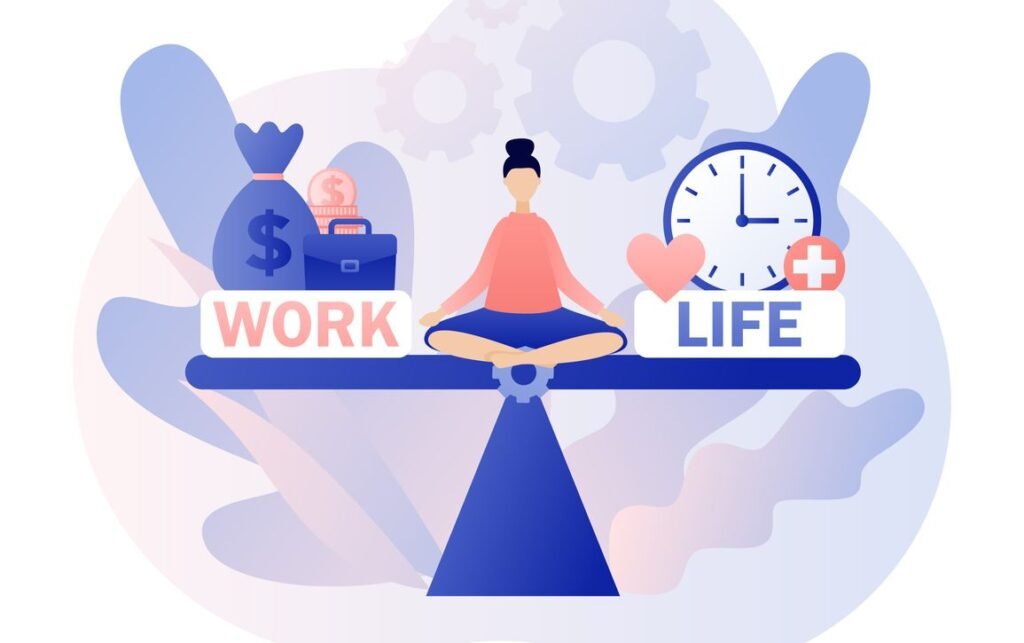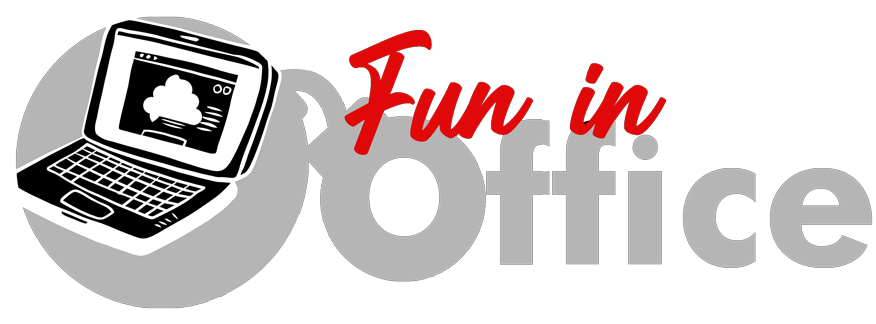Work-life balance is a crucial aspect of a healthy and productive work environment. In today’s fast-paced world, finding the perfect equilibrium between professional responsibilities and personal life can be challenging, but it’s essential for overall well-being. This article will explore various strategies and tips for achieving and maintaining a healthy work-life balance in the office.
Understanding Work-Life Balance

Before delving into strategies for achieving work-life balance, it’s important to understand what this concept entails. Work-life balance refers to the equilibrium between the time and energy devoted to work and the time and energy allocated to other aspects of life, such as family, hobbies, and personal development. Achieving a healthy work-life balance is not only beneficial for individual well-being but also for productivity and job satisfaction.
Importance of Work-Life Balance
A healthy work-life balance is essential for several reasons:
- Enhanced Productivity: When employees feel balanced and fulfilled in their personal lives, they are more likely to be focused and productive during work hours.
- Improved Health: Chronic stress resulting from an imbalance between work and personal life can lead to various health issues. Maintaining a balance reduces stress and promotes overall health.
- Better Relationships: Spending quality time with family and friends strengthens relationships and provides emotional support, which can positively impact mental health.
- Higher Job Satisfaction: Employees who feel that they have a good work-life balance are generally more satisfied with their jobs and are less likely to experience burnout.
Tips for Achieving Work-Life Balance

Achieving work-life balance requires conscious effort and a commitment to prioritizing both professional and personal aspects of life. Here are some practical tips to help individuals find the right balance:
- Set Boundaries: Establish clear boundaries between work and personal time. Avoid checking work emails or taking work calls during personal time, unless absolutely necessary.
- Prioritize Tasks: Identify the most important tasks at work and focus on completing them efficiently. Delegate tasks when possible to avoid feeling overwhelmed.
- Schedule Downtime: Schedule regular breaks throughout the workday to rest and recharge. Use this time to engage in activities that promote relaxation, such as meditation or a short walk.
- Maintain a Healthy Lifestyle: Eat well, exercise regularly, and get enough sleep. Physical health directly impacts mental well-being and overall productivity.
- Practice Mindfulness: Incorporate mindfulness practices into daily life to reduce stress and improve focus. Techniques such as deep breathing and meditation can be beneficial.
- Communicate Effectively: Communicate openly with colleagues and supervisors about workload and deadlines. Setting realistic expectations can help reduce stress.
- Set Realistic Goals: Avoid overcommitting by setting realistic goals and deadlines. Learn to say no when necessary to avoid spreading yourself too thin.
- Unplug Regularly: Take regular breaks from technology and social media to disconnect and focus on personal activities.
Frequently Asked Questions (FAQs) about Work-Life Balance in the Office
Q1: What is work-life balance, and why is it important?
A: Work-life balance refers to the equilibrium between the time and energy devoted to work and the time and energy allocated to other aspects of life. It is important for overall well-being, productivity, and job satisfaction.
Q2: How can I achieve work-life balance in a busy work environment?
A: Achieving work-life balance in a busy work environment requires setting clear boundaries, prioritizing tasks, scheduling downtime, maintaining a healthy lifestyle, practicing mindfulness, effective communication, setting realistic goals, and unplugging regularly.
Q3: How does work-life balance impact productivity?
A: Maintaining a healthy work-life balance can enhance productivity by reducing stress, improving focus, and preventing burnout. Employees who feel balanced and fulfilled in their personal lives are more likely to be focused and productive at work.
Q4: What are some signs that I need to improve my work-life balance?
A: Signs that you may need to improve your work-life balance include feeling constantly stressed or overwhelmed, experiencing physical or mental health issues related to stress, neglecting personal relationships, and feeling dissatisfied with work.
Q5: How can I communicate my need for better work-life balance to my employer?
A: Communicate openly and honestly with your employer about your need for better work-life balance. Discuss specific challenges you are facing and propose practical solutions that benefit both you and the organization.
Conclusion, achieving a healthy work-life balance is a continuous process that requires self-awareness and effort. By implementing the tips outlined in this article, individuals can create a more fulfilling and balanced life, both personally and professionally.
Last modified: January 26, 2024





















